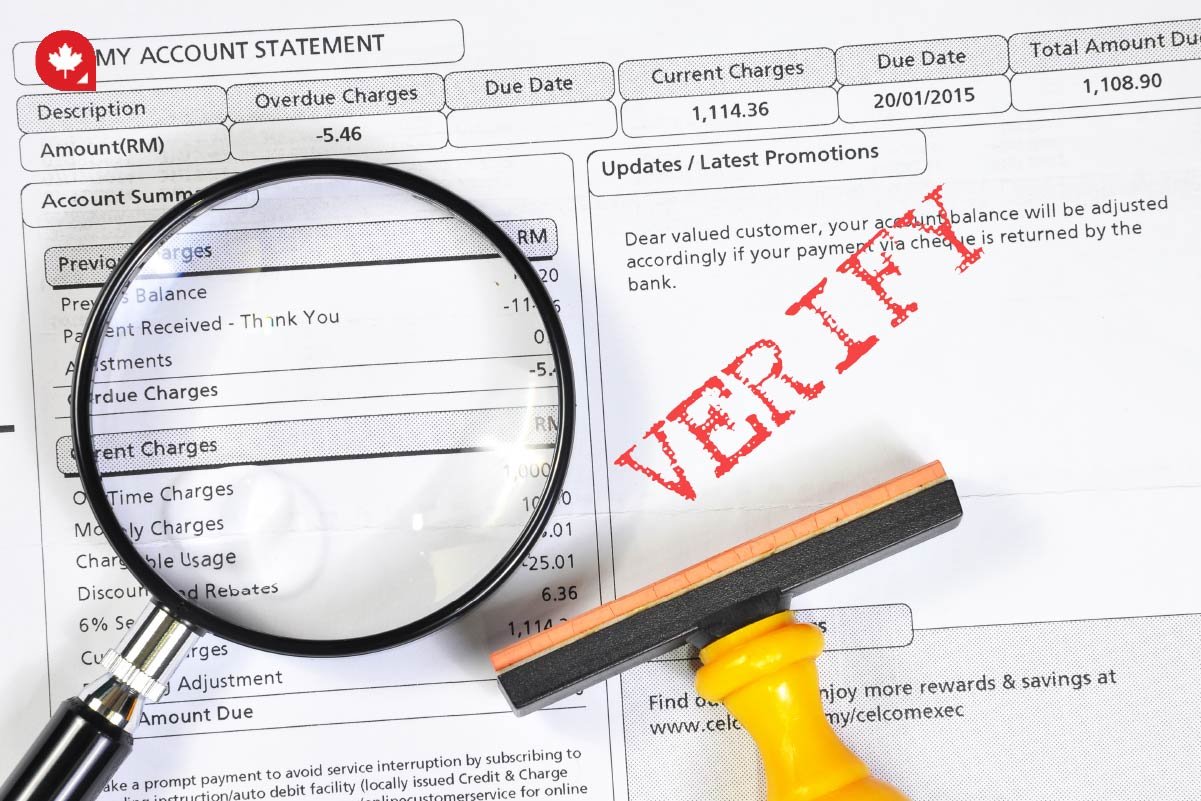Getting to know the ins and outs of Canadian immigration demands careful preparation, especially regarding document translation and verification. Certified translations and verifications play an essential role in presenting these documents accurately to Canadian authorities, demonstrating their importance in establishing your eligibility and compliance with the country’s immigration regulations. Ensuring your paperwork meets the requirements of Immigration, Refugees, and Citizenship Canada (IRCC) is crucial for a smooth application process.
Ready to learn which documents you must translate or verify to immigrate to Canada? Then, take a look at our guide on understanding which crucial documents require translation or verification for a seamless Canadian immigration application process.
Which Documents Need to Be Translated For Canadian Immigration?

Getting an understanding of Canadian immigration requires careful attention to document translation. Essential documents, such as passports, birth certificates, and educational records, need accurate translations. Here is a comprehensive guide on which documents you need to translate for Canadian immigration.
Personal Documents
Personal documents are essential for establishing your identity and background, and will be used by Canadian immigration officials to verify your eligibility. Below are some of the personal documents you may need to translate. Personal documents are essential for establishing your identity and background, and will be used by Canadian immigration officials to verify your eligibility.
- Birth Certificates: This document proves your birth date and parentage. Any birth certificate not in English or French needs a certified translation.
- Marriage Certificates: If you're married, a translated marriage certificate verifies your marital status. This holds weight for spousal sponsorships or applications where marital status is relevant.
- Death Certificates: If your spouse or parents are deceased, a translated death certificate might be required as part of your application.
- Adoption Records: A translated copy of your adoption records can be crucial documentation if you were adopted.
- Divorce Decrees: A translated divorce decree establishes your legal marital status if you were previously married.
Educational Documents
If you plan on continuing your education in Canada or using your existing qualifications for employment purposes, you'll likely need to provide translated versions of diplomas, transcripts, and certificates. Here are some of the educational documents you may need to translate.
- Diplomas and Degrees: Any diplomas or degrees not in English or French necessitate certified translations.
- Transcripts: Academic transcripts detailing your courses and grades often require translation if not initially presented in English or French.
- Certificates of Completion: Completion certificates for vocational programs or specialized training might need translation if not issued in English or French.
Financial Documents
Proof of financial resources is often required for immigration applications. The specific documents needed will depend on the type of immigration program you're applying for. Here are some of the financial documents you may need to translate.
- Bank Statements: Translated bank statements (typically covering the last six months) might be required to demonstrate financial stability and sufficient funds for settlement in Canada.
- Tax Documents: Tax documents translated into English or French might be requested as proof of income or financial standing.
- Proof of Funds: Documentation demonstrating you have sufficient settlement funds to support yourself in Canada often requires translation if not presented in English or French.
Medical Documents
Canadian immigration requires a medical examination to ensure you meet the health standards for entry. Any medical certificates or reports resulting from this examination will likely need to be translated. Below are some financial documents you may need to translate.
- Medical Exam Results: IRCC requires a medical exam completed by a designated physician.
- Immunization Records: Translated immunization records might be requested to ensure you meet Canada's public health requirements.
Police Certificates
These documents, issued by the authorities in countries you've resided in for a specific period, detail your criminal record. While some countries may issue them with an apostille (a form of international authentication), translation into English or French is still necessary in most cases.
Which Documents Need to Be Verified For Canadian Immigration?

Let's dive into the document verification process across the different stages of your Canadian immigration journey, focusing on the documents listed in the initial profile, permanent residence application, and additional supporting documents sections.
Initial Profile Documents
These documents are the foundation of your application and will trigger the processing timeline. It's important to ensure they are complete and accurate before proceeding. Below are the initial documents you must verify to move to Canada.
- Passport or Travel Document: Essential for establishing identity and nationality, requiring verification to confirm authenticity.
- Language Test Results: Such as International English Language Testing System (IELTS) or Canadian English Language Proficiency Index Program (CELPIP) scores, verifying proficiency in English or French, the official languages of Canada.
- Educational Credential Assessment (ECA): Validates foreign educational qualifications against Canadian standards, crucial for points-based immigration programs.
- Proof of Canadian Education: If applicable, documents verifying education obtained in Canada, supporting claims for additional points.
- Provincial Nomination: Confirmation of nomination by a Canadian province or territory, requiring verification to ensure eligibility for specific immigration streams.
- Job Offer: Verify a valid job offer from a Canadian employer, substantiating eligibility for employer-sponsored immigration programs.
- Proof of Work Experience: Documents such as reference letters or employment contracts verifying relevant work experience aligned with immigration program requirements.
- Certificate of Qualification: For tradespersons, certification verifying skills and qualifications is necessary for specific skilled worker programs.
- Proof of Funds: Verification of financial capacity to support yourself and family members upon your arrival in Canada, as immigration programs require.
Permanent Residence Application Documents
Canadian permanent residency is a pathway to Canadian citizenship, and these documents will be used to assess your eligibility for this status. The following presents the permanent residence application documents you must verify.
- Police Certificates: Verification of criminal record checks via police certificates from your country of origin, ensuring applicants meet character requirements.
- Medical Exams: Verifying medical tests by approved physicians to assess your health conditions and medical admissibility into Canada.
- Birth Certificate: Verification of birth details, ensuring accurate identification and family information.
- Marriage Certificate: If applicable, verify your marital status and relationship details.
- Divorce Certificate: Verification of divorce proceedings if you were previously married, confirming legal status and changes in your marital status.
- Death Certificate: Verify your spouse's or family member's death details if applicable.
- Adoption Certificate: Verify adoption details, if applicable, and establish legal relationships within your family.
- Use of a Representative For: If you’re using an immigration consultant or representative, verification of authorization for representation is required.
- Common-Law Union Form: If you’re in a common-law relationship, verification of the duration and legitimacy of the relationship.
Additional Supporting Documents
Depending on your specific circumstances, you may need to provide additional documents beyond the initial requirements. These could include proof of work experience, police certificates, or letters of recommendation. Below are the additional documents you must verify to immigrate to Canada.
- Proof of Relationship: Documents such as birth certificates or marriage certificates to prove your relationships with accompanying family members.
- Digital Photos: Specifications for photographs to meet Canadian visa requirements.
- Translation Documents: Certified translations of documents not originally in English or French.
- Authority to Release Personal Information: Authorization allows the IRCC to obtain the necessary information to process your application.
How Long Will it Take to Translate or Verify My Documents?

Understanding the timeline for translating or verifying documents is crucial when preparing for Canadian immigration. Factors such as document complexity, language pairs involved, and the translator's availability can impact processing times significantly. Here's a closer look into the factors influencing the wait times for translating and verifying required documents for Canadian immigration.
Translation Time
Understanding the factors that influence the time it takes to translate your documents can help you manage your expectations and ensure a smooth application process. Below are some of the factors influencing the translation times for your Canada.
- Document Complexity: Straightforward documents with minimal jargon enable faster translation times than technical documents rich in legal or specialized terms.
- Translator Experience: Experienced translators with expertise in immigration matters can work efficiently and deliver accurate translations.
- Workload: Busy translation agencies might have longer turnaround times. Consider this when choosing a service.
Verification Time
The time it takes to verify your documents can vary depending on the issuing authority and the complexity of the verification process.The factors outlined below influence verification times for your documents.
- Verification Method: IRCC employs various methods. Directly contacting issuing institutions (schools, employers) typically takes longer than online verification systems.
- Document Origin: Verification times can vary depending on the country that issued the document. Some countries have more streamlined verification processes than others.
- Document Complexity: Complex documents requiring in-depth verification (e.g., educational credentials) might take longer.
Tips For Faster Turnaround Times
By being prepared and organized, you can help ensure a more efficient and streamlined application process. You can use the tips below to streamline the turnaround times for translation or verifying your Canadian immigration documents.
- Start Early: Don't wait until the last minute to translate and verify documents. Factor in potential delays.
- Choose Experienced Translators: Opt for certified translators familiar with Canadian immigration requirements.
- Gather Documents Early: Obtaining documents like birth certificates or police certificates can take time. Start early to avoid delays.
- Consider Apostilles/Legalization: If your home country requires apostilles or legalization for specific documents, obtain them beforehand to avoid delays.
These are general timeframes. The actual time for translation and verification can vary depending on the specific circumstances. It's always best to consult your translation service and IRCC for the most accurate estimates.
FAQs
Do I Need to Translate Documents for Accompanying Family Members?
Yes, documents for accompanying family members such as passports, birth certificates, and marriage certificates, must also be translated into English or French if they are not initially in one of these languages, ensuring they meet Canadian immigration requirements.
Are There Specific Formatting Requirements for Translated Documents?
While there are no strict formatting guidelines, translated documents should maintain the integrity of the original layout and content. Ensuring clarity and legibility is essential, including all stamps, seals, and signatures on the original document.
What Support Services Are Available For Express Entry Applicants?
Support services for Express Entry applicants include assistance from immigration consultants, lawyers specializing in Canadian immigration law, and online resources provided by IRCC to help navigate the application process effectively.
Can I Translate The Documents Myself?
No, Canadian immigration requires documents to be translated by certified professionals or recognized translation agencies to ensure accuracy and reliability. Personal translations are not accepted for official immigration purposes to Canada.




